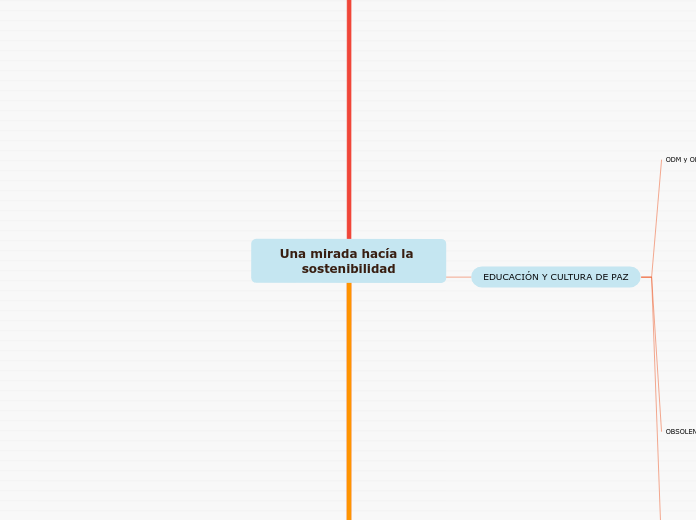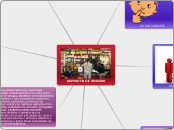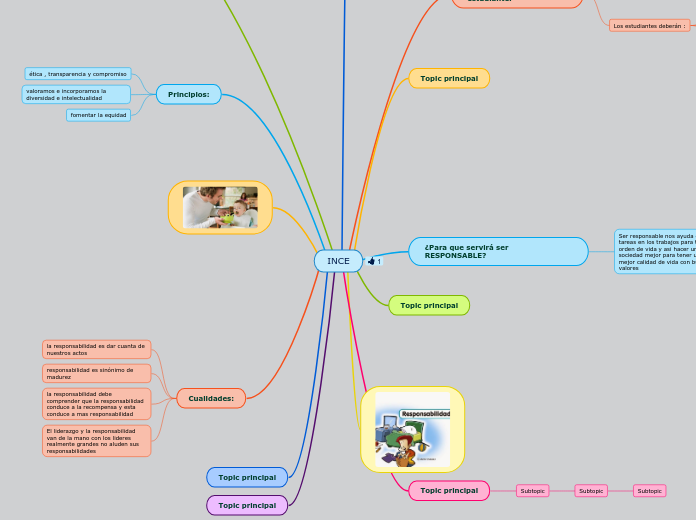Una mirada hacía la sostenibilidad
To name your story, you have to think about the overall message and what you want your audience to understand from the story. Also, make it relevant and easy to remember.
Bibliografía: https://aulas.ecci.edu.co/repository/file.php/dimension/unidad3.html
FUTURO AMBIENTAL
The ending of a story is essential. We all know that if the ending is weak, what happened before loses its importance. So make it unpredictable, but fair. A resolved ending answers all the questions and ties up any loose threads from the plot.
Se debe reparar lo irreparable para evitar consumismo, pero el capitalismo con la innovación genera la necesidad de comprar.
This is the closure section of the story.
See examples of possible outcomes below:
- all problems have been solved
- it's clear how each one of your characters ends up
- your main character is transformed by the challenge
Disminuyendo la huella de carbono, la cual es la totalidad de emisiones de gases de efecto invernadero producidas de manera directa o indirecta por un persona u organización.
Para lograr el cambio, se deben cambiar los hábitos de consumo, vivir una vida más sencilla.
Try answering these questions to come up with a closure:
- Have all the problems been solved?
- Is there a clear picture of what happens with each character in the story?
- Has the challenge transformed your main character?
- How do the characters feel in the end?
Se piensa en una idea utópica para el desarrollo sostenible a futuro, donde todos los seres sean iguales y tengan los mismos derechos.
This is the moment when the main character surpasses the last obstacle and finally faces their greatest challenge.
The climax usually follows one of these patterns:
- realization
- resolution
- choice
Type in your answer.
El gran problema se encuentra en no saber c{omo degradar los residuos solidos para evitar la alta contaminación debido a sus componentes tóxicos.
En todos los sectores de la sociedad se han enfocado de sobremanera en que se debe reciclar, reutilizar y reusar los residuos.
EDUCACIÓN Y CULTURA DE PAZ
The middle of the story is where you add layers of complications that will lead to the end. Reveal more about the character's journey. Did their personality go through changes? How did they overcome the challenges? And as you build up the story’s central conflict, make it more personal to that character. Also, from the middle act, you have to lead into the final act.
RESPONSABILIDAD SOCIAL EMPRESARIAL
There wouldn't be any tension and excitement in your story if there weren't any obstacles in your character's way.
Son acciones enfocadas al mejoramiento de los procesos productivos de la empresa, relacionado muy comúnmente con la implementación del sistema de gestión ambiental ISO 14001:2015.
A story is nothing more than a character overcoming a series of difficulties to reach the desired goal. Obstacles usually create suspense and conflict. In overcoming obstacles, there is growth: weak becomes strong; hatred turns into love; sadness into happiness; wrong into right; lies into truth; or evil becomes good.
See a few examples below:
- stopping a meteor
- finding a killer
- finding love
Son varias las empresas que han implementado con éxito esta política de manera voluntaria, pese a que no ha sido asumida por la mayoría del sector productiva.
Existen empresas que han adoptado el sistema de manera voluntari, tales como:
Aeropuerto internacional El Dorado
Grupo Bancolombia
Cementos Argos
Alpina
Esta responsabilidad va de la mano con las autoridades ambientales competentes quienes velan por el cumplimiento de la normatividad ambiental, implícita en la responsabilidad ambiental empresarial.
OBSOLENCIA PROGRAMADA
Your character(s) need(s) motivation in order to solve the challenge(s).
Este modelo de consumo agotará los recursos de las generaciones futuras, ya que se está agotando todo para generar demanda de productos innecesarios, sumiendo más y más a los países pobres, en círculos infinitos de miseria y enfermedad, lo que no es concordante con los ODS.
Secondary characters might also have motives that lead them to cross paths with the main character or which might trigger them to help the main character.
El término de obsolescencia programada es una táctica comercial y psicológica en donde se baja el tiempo de utilidad de un producto a propósito para que se obligue al consumidor a comprar otro producto, ya que saldría más costoso su arreglo o simplemente sin arreglo, es decir: obsoleto.
Why does your character need to confront this challenge? What does he/she expect to accomplish by solving it?
See a few examples:
- will marry in 3 days
- can fix the mistakes of the past
ODM y ODS
Each story has a main character and that character usually needs to solve a problem or challenge. The character's challenge is the one that creates tension throughout the story.
ODS OBJETIVOS con
meta de cumplimiento
para el 2030
Type in any other challenges which other characters in the story need to face.
Alianzas para lograr los objetivos
Paz, justicia e instituciones sólidas
Vida de ecosistemas terrestres
Vida submarina
Acción por el clima
Producción y consumo responsable
Ciudades y comunidades sostenibles
Reducción de las desigualdades
Industria, innovación e infraestructura
Trabajo decente y crecimiento económico
Energía asequible y no contaminante
Agua limpia y saneamiento básico
Igualdad de género
Educación de calidad
Salud y bienestar
Hambre cero
Fin de la pobreza
ODM OBJETIVOS
In most stories, there are 3 challenges. The number 3 is a mystical number symbolizing completeness. Try to come up with interesting challenges with which your character needs to struggle.
See a few examples below:
- turns into a werewolf at night
- is sent back in time
Fomentar una alianza universal para el desarrollo.
Garantizar la sostenibilidad del medio ambiente
Combatir el VIH/SIDA, Malaria y otras enfermedades
Mejorar la salud materna.
Reducir la mortalidad infantil.
Promover la igualdad entre géneros y generar la autonomía en la mujer.
Lograr la enseñanza primaria universal.
Erradicar la pobreza extrema y el hambre.
DESARROLLO SOSTENIBLE
In the beginning of the story (or the exposition), you will need to introduce the setting and characters. You might also want to introduce the main conflict. This part of the story is important because it gives the reader necessary background information and maybe even a first insight into a character’s personality.
Se denominó un concepto ideal
The setting (time & place) of a story can change throughout the plot.
El Declive del pensamiento ambiental conllevó a:
Sensory details include sight, sound, touch, smell, and taste. These details are important because they create depth in your setting.
See a few examples below:
- the smell of fresh bread
- the scent of freshly cut grass
- rain falling onto the windshield etc.
Nula empatía por el entorno
Subtopic
Deshumanización de la sociedad
En gran medida habían llevado al mundo a grandes guerras que como consecuencia hubo:
The weather is an important element in your story because it can highly influence the ambiance and the mood of the characters.
Declive del pensamiento ambiental.
The most affected character is the main character. Write down here if he/she is affected by these weather conditions in any way. For example, if they lost a family member or their home during a hurricane, etc.
Extinción de especies
Decide if you want to include an element of nature in your story. For example, a rainbow can be a very nice choice for a happy ending. The mist in a story can represent mystery and secrets. A thunder can appear in the background at the moment when the 'bad guy' of the story makes its appearance, etc.
Destrucción de ecosistemas
Does your story include catastrophic weather? See a few suggestions below or add your own:
- hurricane, earthquake, storm, etc
Una meta a la cual se debía apuntar para intentar mejorar las condiciones sociales, económicas y políticas.
The time of the story can also change. It can describe the event of a single day or can include an entire year's plot. Anyway, don't forget to mention it.
Muchos países fueron participes de la idea
Your story can take place wherever your imagination will take you to.
For example: in an elevator, in an enchanted forest, etc. Don't forget to give details of the environment each time the setting changes, otherwise, the story can be confusing. Also, mention the seasons as each of them has unique weather and events.
¿Qué es?
Characters are essential to a good story. Usually, the protagonist(s) is/are the most affected by the plot. Introduce a character by focusing on their actions, interests, and occupation, as the physical appearance doesn't make a difference in most cases.
“Se refiere al desarrollo que satisface las necesidades de la generación presente, sin comprometer la capacidad de las generaciones futuras de satisfacer sus propias necesidades”
Type in the name of your character.
Refleja cómo deberían ser los cambios no solo actitudinales sino políticos, sociales y económicos.
Which traits best describe the character's personality? Choose more if necessary:
introvertedloyalkindindependentquick-thinkingadventuresomeidealisticsweet-naturedcalmrisk-takercreativewittystrictfussyweirdclumsyharshaggressivecarelessclingingcowardlycrueldeceitfulimpulsiveOther
El término de “Desarrollo Sostenible” se mencionó por primera vez de manera oficial en el informe Brundtland de 1987.
Choose the type of your chacter:
Protagonist (main character)Antagonist (main character's opponent)Flat (stereotypical character)Round (his/ her personality develops throughout the story)Static (doesn't evolve as a person throughout the story)Dynamic (dramatical change in personality)Confidant (the main character trusts him/ her)Foil (contrasting character who enhances the personality of another character)Other
Este programa tiene dos puntos de discusión
La sostenibilidad como objetivo principal
del desarrollo sostenible.
Contradicciones sobre el contexto y sentido del desarrollo sostenible.










